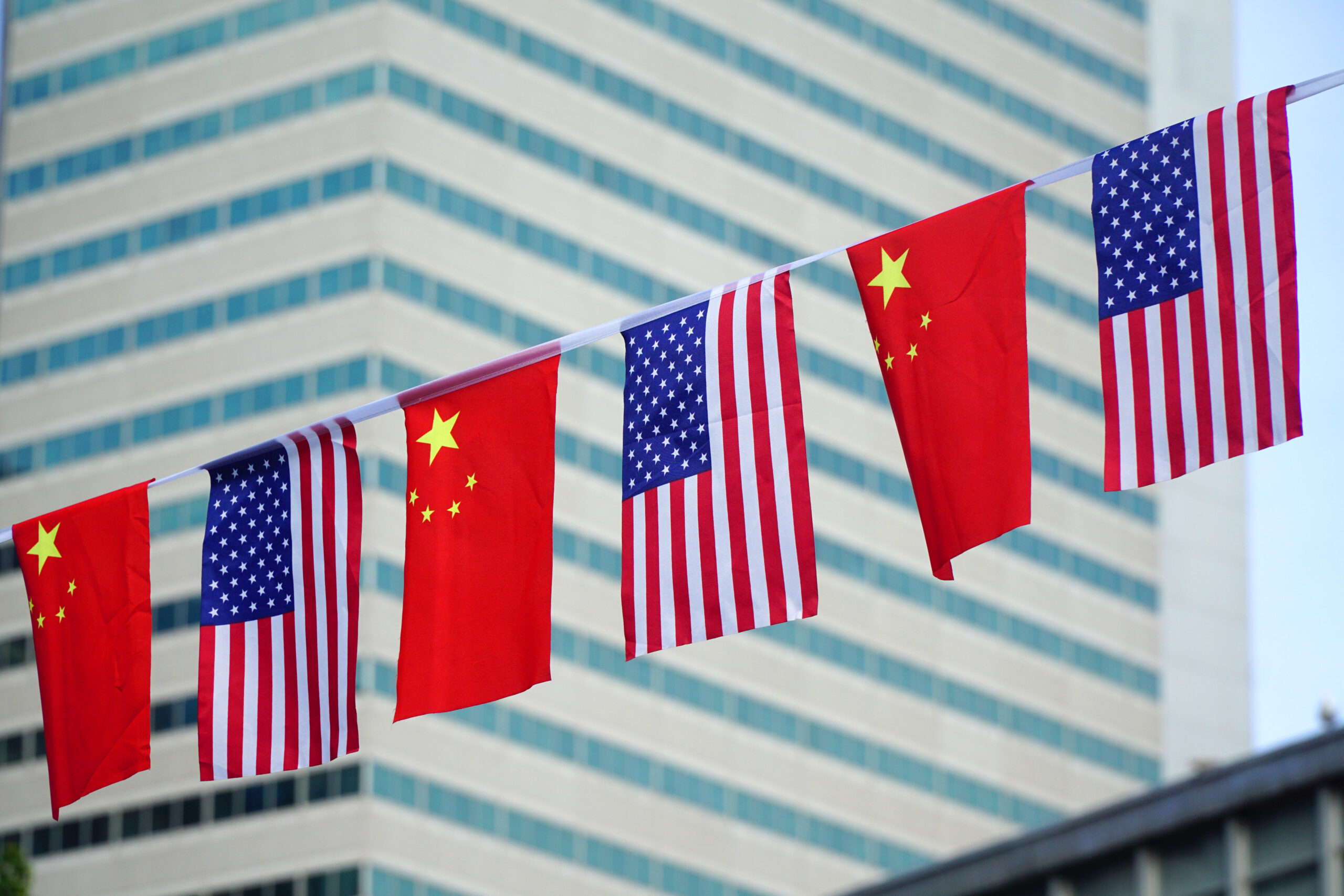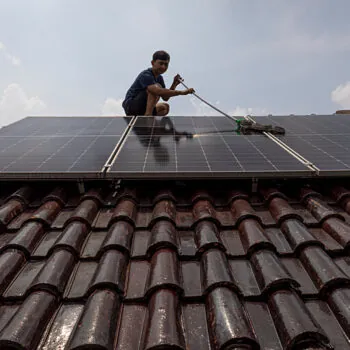The outcome of the US election is unlikely to change the direction of China’s climate policy, nor the geopolitics underpinning it. But whoever wins the keys to the White House will have an impact on the pace of China’s zero carbon transition and how the country engages with climate change on the international stage.
What won’t change after the election
Beijing has doubled down on its climate pledges despite President Trump pulling the US out of the Paris climate agreement. In September, China’s President Xi Jinping announced the country’s aim to become carbon neutral by 2060. Policymakers in Beijing are now contemplating a country-wide carbon emissions cap in China’s next five-year economic plan. This, along with a target to double the share of renewable energy in the energy system in the next decade.
The US’s retreat from international affairs and the intensifying US-China rivalry are prompting Chinese policymakers to increasingly view their climate policies under a geopolitical lens. Beijing’s decision to announce its new climate pledge ahead of the US election is viewed by some analysts as a move to put China in a strong position on climate policy, irrespective of a Trump or Biden win.
Beijing is increasingly positioning its allegiance to the Paris Agreement as push back against US unilateralism and to showcase China as a responsible player in the multilateral system. This is evident in the statements by the Chinese after recent EU-China high-level meetings and in a rare note issued by China’s Foreign Ministry hitting back at Washington’s accusations of Beijing’s record on climate and environment.
US-China relations are likely to remain strained despite the election. A re-elected Trump will continue down the same path, dealing with China in a transactional and aggressive manner. A Biden presidency will dial down the aggressive rhetoric. However, Biden has reaffirmed the need for the US to counter China’s “abusive economic practices.” His foreign policy advisors share Trump’s assessment on China’s “predatory” approach on trade and have advocated for a more assertive transatlantic approach on China.
Given the growing role of climate policy in China’s foreign and geopolitical strategy, the election outcomes are unlikely to change China’s long-term climate goal.
What the election could change
While the election will not have a direct impact on China’s determination to become a carbon neutral economy, the next US President’s policy choices could affect the pace of China’s domestic climate policy and the way it participates with global climate governance.
Renewed trade tensions with a Trump White House could prompt Chinese policymakers to prioritise strengthening resilience, including on energy. With coal being the most abundant and secure source of energy available in China, such policies might throw a lifeline to the coal power industry, slowing progress on renewable energy. Prolonging the role of coal in the power system will put China on a steeper and costlier pathway to climate neutrality, one requiring an enhanced deployment of negative emissions technologies.
If Biden carries through with his plan to decarbonise the US’s electricity system by 2035 and joins the “carbon neutral club” alongside China, the EU, Japan and dozens of other countries, it means countries making up over half the global economy will have committed to a clear pathway to carbon neutrality.
Such action will send a powerful signal to the markets, stimulating investments and innovation in renewable energy, driving down costs and accelerating adoption of green technologies.
The US will return to international affairs under Biden’s watch. A more progressive and globally minded USA will re-join international bodies such as the UNFCCC and WHO, working with like-minded partners such as the EU, UK, Japan and South Korea to align diplomatic strategies on China, including on climate policies. This will raise scrutiny on China’s climate policy, which could either force Chinese policymakers to bring forward concrete climate actions or assert a hardened stance during next year’s UN climate negotiations in Glasgow.
A Biden Administration is also likely to lend its voice in support of an international approach on bilateral debt relief. This would increase pressure on China, a major creditor to the world’s poorest countries, to participate fully in a coordinated debt suspension mechanism aiming to give developing countries the crucial fiscal space to weather the COVID-19 crisis and “build back better”.
The bilateral climate agreement between the US and China in 2014 is largely seen as a catalyst for the ambitious Paris Agreement. Six years on, the chance of another US-China grand bargain on climate is slim. While whoever wins the White House in November will not change the long-term trajectory of China’s climate policy, the decisions of the next US President could either put global climate neutrality on the fast-track or the backburner.


